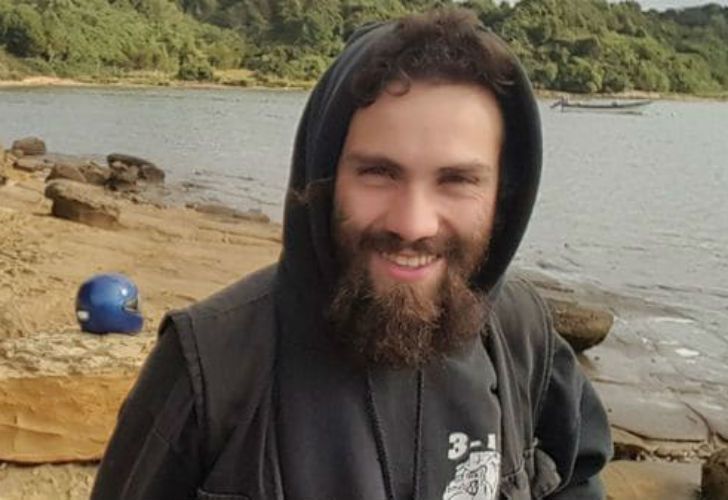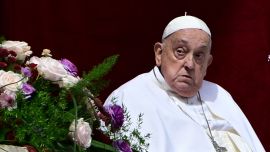Lawyer Verónica Heredia represents Sergio Maldonado in the ongoing investigation into the death of his younger brother Santiago, the 28-year-old artesan whose body was found in the Chubut River 73 days after his disappearance during a Border Guard crackdown on August 1, 2017.
Maldonado had been participating in a roadblock with a group of militant Mapuches who were protesting over claimed ancestral lands. The case is currently being treated as a “forced disappearance followed by death”, a charge that places responsibility for Maldonado’s death with the Border Guard officers who acted to displace the roadblock that day.
You lodged a complaint with the Supreme Court over Judge Gustavo Lleral’s refusal to incorporate independent experts in his investigation. Why are you concerned about the composition of people involved in the investigation?
When we speak about incidents in which the State is the main suspect — in other words, people who form part of its structure — and the State is investigating itself, then we must be concerned. Specifically in this case, just as the judge removed the Gendarmerie (Border Guard) in order to investigate — because that force is the main suspect — he should also remove the other forces that respond to the national Security Ministry, which are the Coast Guard, Aeronautical Police and Federal Police. We have also emphasised that on August 1, 2017 the Security Ministry’s Cabinet Chief Pablo Noceti was present in the area. We’re telling the judge: ‘You must investigate the main hypothesis which is forced disappearance followed by death’. If the judge continues investigating, gathering evidence in collaboration with these Forces, then we assert that this investigation is neither impartial nor independent. The Coast Guard divers twice searched the same area where Santiago Maldonado’s body was found. Why did they not find him the first two times? Because he wasn’t there? Because they did their jobs poorly? Because they didn’t want to find the body?
Who do you propose should form part of the investigative team?
Looking at examples in other parts of the world, the Inter-American Commision on Human Rights has formed independent teams to investigate similar incidents. We have requested that the judge do the same but he alone should decide whom to include. We have simply suggested the idea of an independent team.
Why is the case considered a forced disappearance if Maldonado’s body was found?
This is determined by Article 142 ter of the Criminal Code which defines a forced disappearance as the deprivation of a person’s freedom and the lack of information or the negative response of State forces to recognise that deprivation or inform about the location of a missing person, which is what we argue happened in this case.
Why do you think the government has insisted that the judge drop the charges of ‘forced disappearance followed by death’?
This is a situation that forms part of the phenomenon of forced disappearances in which the State is investigating itself and instead of opening up to the investigative process it deliberately inflicts pressure to shut the case down, claiming that what happened was anything but a forced disappearance. The media, with many journalists who receive state-funded advertising revenues, are acting as the government’s spokesmen. The typification of charges is provisional and can change with a sentence. The only way it (the State) could change the charges is by telling us what happened. The family wants to know and they have doubts that this investigation has not yet addressed.

Do you trust in the abilities of a judge under this level of public and political pressure?
Judges who cannot bear this kind of public, political and media pressure should find something else to do in life. Judges are a part of the State and they must act accordingly. If they feel overwhelmed, then they must step aside or they should assume their role in a democratic system.
In that light, and given the political and social implications of this case, a judge like Gustavo Lleral has significant responsibilities...
Judge Lleral has a huge responsibility. He must act with prudence and legality. We do not understand why he has refused to work with an independent team of experts. His attitudes have weakened the investigation and weakened our chances of finding out the truth because we have lost time.
Given the current pool of evidence, what precisely do you think happened to Maldonado?
We stand by the hypothesis of forced disappearance followed by death, based on certainties and unresolved doubts. Our certainties are that he was present at (the Mapuche community) Pulof on August 1, 2017; that more than 100 officers entered the community illegally, firing shots; and that (the protesters) ran to the Chubut River. We are certain that it was in these circumstances that Santiago Maldonado was last seen alive and that his body was found in a place where Coast Guard divers searched twice. And we have many doubts about violent State forces acting in an arbitrary and disproportionate way against eight protesters.
Do you believe we will ever find out what happened to Santiago Maldonado?
Of course I do. I do my job conscientiously and with the conviction that legal processes must allow us to find the truth and obtain justice. Aside from my commitment to human rights, I’m a lawyer and I’m not cynical. The Law must give us answers.

























Comments